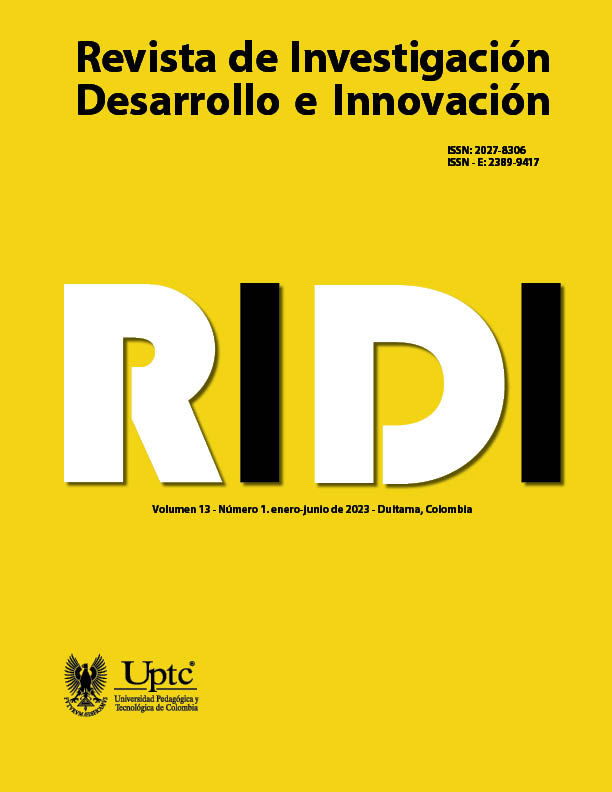The development of tourism and its relationship with foreign languages: the case of Antioquia (Colombia)

Abstract
In this article we report partial results of a needs assessment on language issues (foreign and native) in various sectors in Antioquia, Colombia, particularly regarding the tourism sector. Although the study does not focus on this sector specifically, the data revealed the growing importance of tourism in the department and the role of foreign languages in its strengthening. In this diagnosis, a document analysis of municipal development plans, a survey, focus groups, and interviews with different actors from the educational, productive, governmental and civil society sectors were carried out. The findings reflect the relevance of tourism in the social and economic development of the regions, as well as the growing importance of foreign languages, especially English, in the provision of tourist services and its close relationship with the vocation of the territories.
Keywords
tourism;, bilingualism;, multilingualism;, territory
Author Biography
Paula Andrea Echeverri-Sucerquia
Licenciada en Enseñanza de Lenguas Extranjeras, Doctor in Education, Curriculum and Instruction of Southern
Diana Isabel Quinchía-Ortiz
icenciada en Enseñanza de Lenguas Extranjeras, Magíster en Didáctica del Inglés
References
- AA. VV. (2008). «Plurilingüismo». Diccionario de términos clave de ELE. https://cvc.cervantes.es/ensenanza/biblioteca_ele/diccio_ele/diccionario/plurilinguismo.htm
- Antioquia Informa (3 de febrero de 2021). Nueva Secretaría de Turismo. https://antioquiainforma.com/nueva-secretaria-de-turismo/
- Amirbakzadeh, E., & Alroaia, Y. V. (2020). Using Foreign Language Learning Factors in Tourism Development in Iran. International Journal of Foreign Language Teaching & Research, 8 (30), 61-79.
- Antioquia es mágica, https://turismoantioquia.travel/antioquia-es-magica/
- Arismendi, F., &Ramírez, D. (2019). Vers une perspective plurilingue et interculturelle dans la formation en langues étrangères à des étudiants indigènes en contexte universitaire. Lenguaje, 47 (2S), 621-647. DOI: https://doi.org/10.25100/lenguaje.v47i3.7289
- Baralo, M. (2015). El valor del idioma como recurso turístico, económico y cultural. Signos Universitarios, 34 (51), 35-61.
- Brida, J. G., Monterubbianesi, P. D., Zapata-Aguirre, S., & Giraldo-Velásquez, C. M. (2010). Turismo y crecimiento económico: El caso de Antioquia. TURyDES, 3 (7).
- Chumaña-Suquillo, J. V., Llano-Zhinin, G. V., & Cazar-Costales, S. S. (2017). Influencia del idioma inglés en el mundo de los negocios: Hipótesis de futuro. Revista Internacional del Mundo Económico y del Derecho, XV, 15-28.
- Echeverri, P. A., Quinchía, D. I., Medina, C. A., Barboza, Y. E., Restrepo, E. A., Barrientos, M. I.,Urrego, C. E., Cardona, A. F., Aristizábal, H. S., Carvajal, N. A., & Vanegas, S. (2022). Diagnóstico de necesidades en temas de plurilingüismo en Antioquia. Colombia: Universidad de Antioquia.
- Gambarota, D. M., & Lorda, M. A. (2017). El turismo como estrategia de desarrollo local. Revista Geográfica Venezolana, 58 (2), 346–359.
- House, J. (2003). English as a lingua franca: A threat to multilingualism? Journal of Sociolinguistics, 7(4), 556-578. DOI: https://doi.org/10.1111/j.1467-9841.2003.00242.x
- Manyoma-Ledesma, E., & Barrios-Vargas, C. (2011). Competencias comunicativas vs. taxistas prestadores de servicios turísticos en Cartagena de Indias. Adelante - Ahead, 2 (1), 91–107.
- Muñoz-Arroyave, E. A. (2017). Territorio de postal: la dualidad del turismo en Santa Fe de Antioquia (Colombia). Cuadernos de Geografía: Revista Colombiana de Geografía, 26 (2), 153-174. https://doi.org/10.15446/rcdg.v26n2.59237 DOI: https://doi.org/10.15446/rcdg.v26n2.59237
- Polo-Tovar, M. (2019). Potencial Turístico Cultural: Plan Estratégico para el Municipio de Galeras, Tierra De Colore. Corporación Universitaria del Caribe - CECAR. DOI: https://doi.org/10.21892/9789585547131.9
- Ramírez, A. (2 de abril de 2022) El turismo, la otra gran apuesta que hace Antioquia. El Tiempo. https://www.eltiempo.com/colombia/medellin/el-turismo-la-otra-gran-apuesta-que-hace-antioquia-662648
- Temizkan, S. P., & Temizkan, R. (2014). A study on foreign language teaching model for tourism undergraduate programs. Electronic Journal of Social Sciences, 13 (59), 58-72. DOI: https://doi.org/10.17755/esosder.18509
- Vugman, L., Casinelli, M. E., & Lizárraga, N. (2019) Inglés en Turismo Rural: lengua franca y fines específicos. In Fernández, S (ed), El Turismo Rural en Debate. Argentina: Universidad de Buenos Aires.